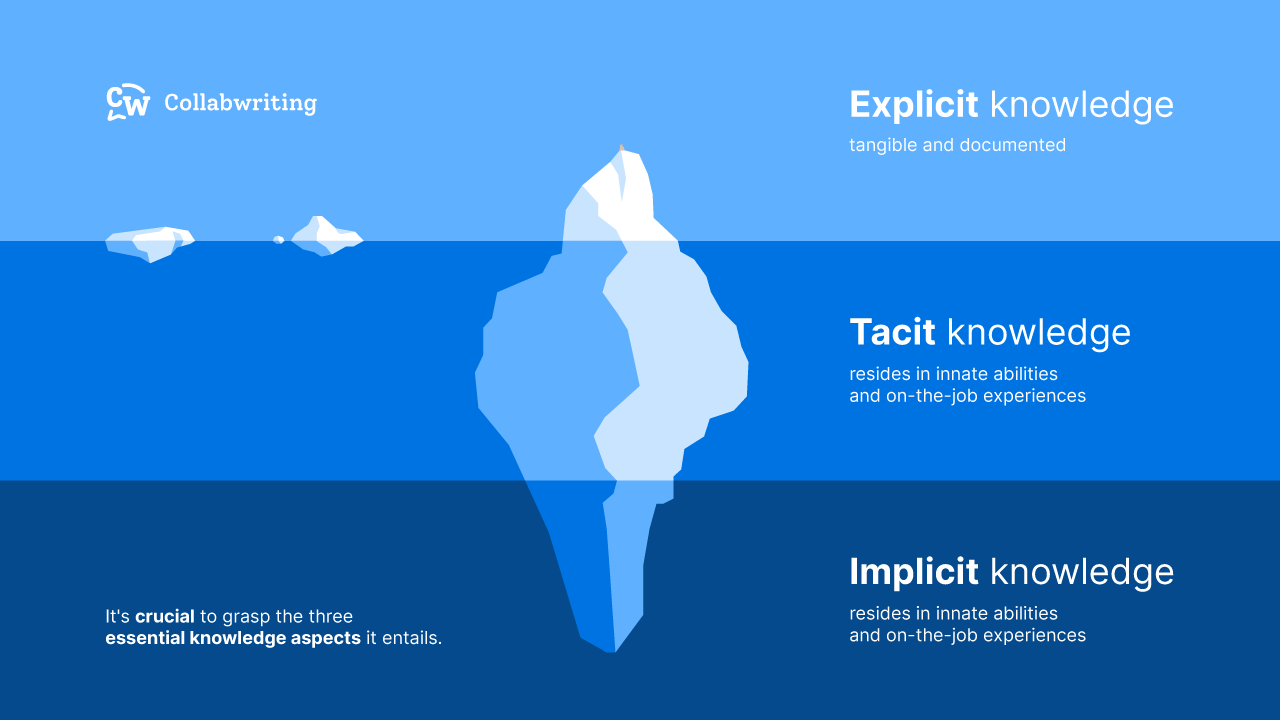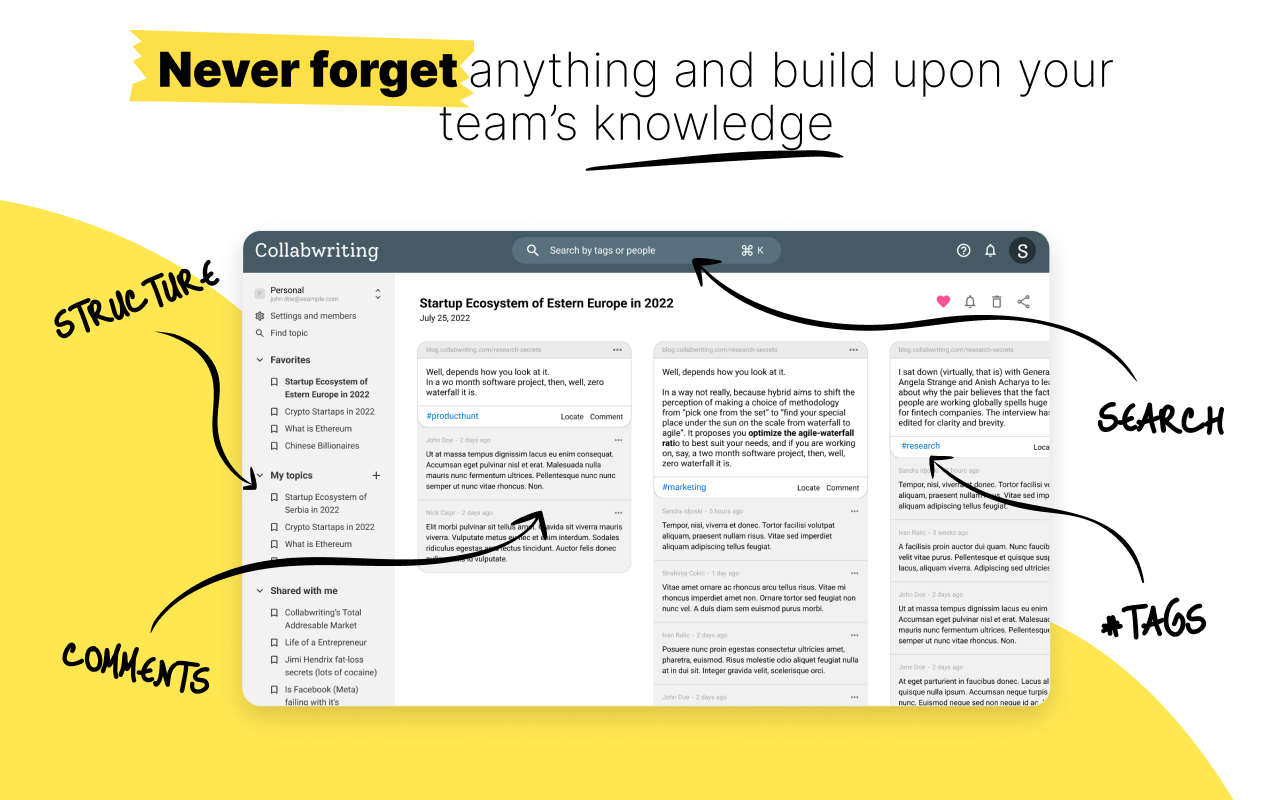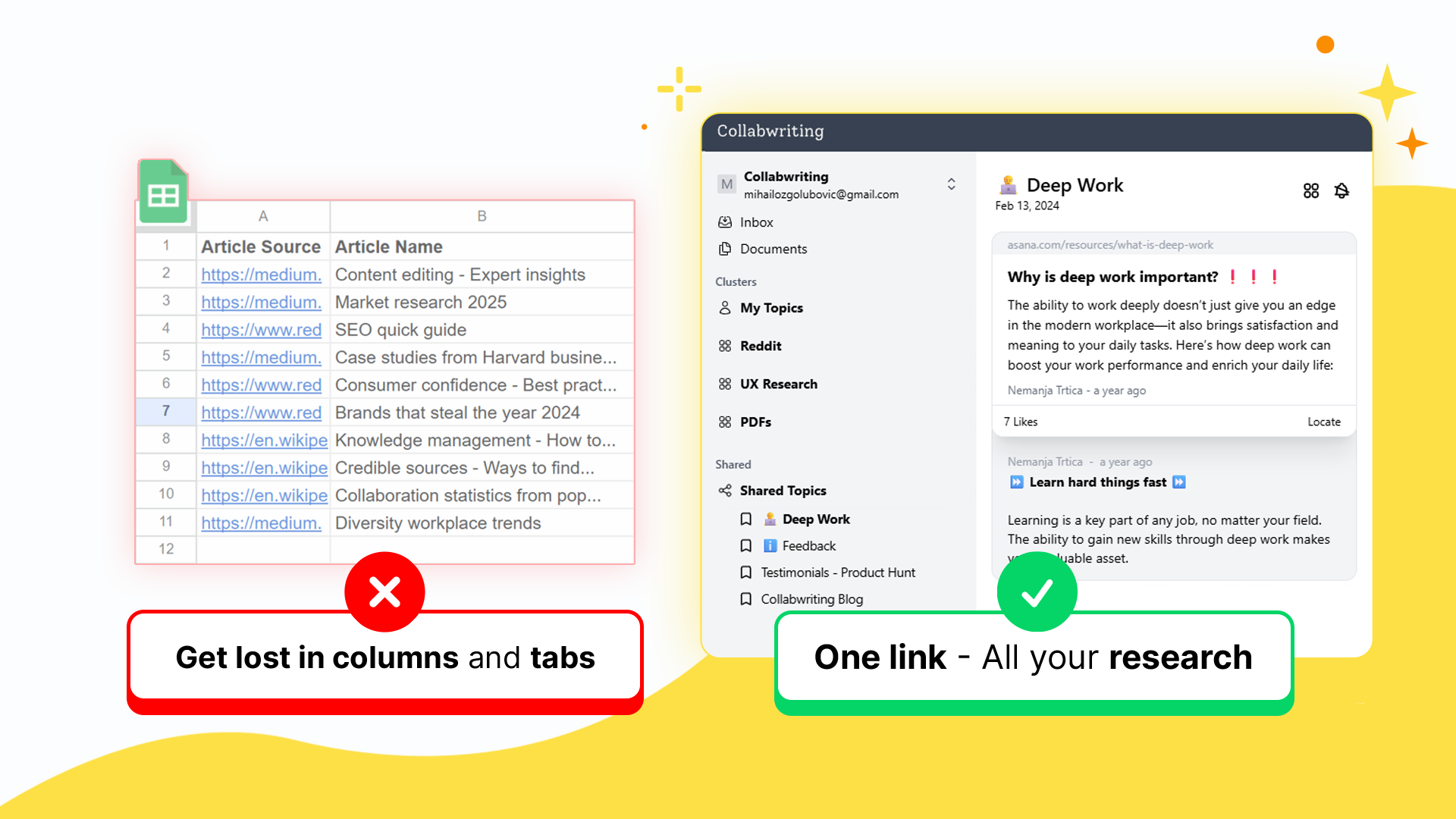Have you ever stopped to consider the immense loss of valuable knowledge, assets, and expertise that organizations face when a talented employee departs or retires?
With the rise of remote and hybrid work settings, the need for shared information within a workforce has become crucial. In this knowledge-driven world, it's not uncommon for employees to believe that hoarding their specialized knowledge makes them more valuable and in-demand professionals.
However, there is a way to overcome this mindset and create a culture that enlightens individuals about the true power of sharing knowledge.
By fostering an environment that encourages knowledge exchange, organizations can empower their employees to realize that sharing their expertise enhances their relevance and indispensability.
A staggering 74% of organizations acknowledge that implementing effective knowledge management practices can boost company productivity by 10-40%.
In this blog post, we will explore the essence of knowledge management, delve into the advantages it brings to organizations, and uncover the most effective approaches to implementing knowledge management best practices.
What is knowledge management?
Knowledge management is a process of defining, capturing, organizing, evaluating, sharing, and retaining all organizational information assets.
These valuable assets encompass a wide range of resources, including documents, policies, databases, employee expertise, and collective experiences.
At its core, knowledge management aims to create seamless connections between teams seeking vital enterprise content or information and individuals with the precise expertise and knowledge required.
By enabling this productive collaboration, businesses can harness the full potential of their organizational knowledge and drive success.
According to Research and Markets, the global knowledge management market will reach $1.1 trillion by 2026.
The importance of knowledge management
Knowledge serves as the lifeblood behind every decision that fuels your organization's growth. It permeates all aspects, from product development and service enhancements to customer engagement and overall company operations.
Due to this invaluable resource, it becomes imperative to effectively disseminate and utilize knowledge within your organization. This is where the transformative power of knowledge management comes into play.
To streamline and optimize this process, a robust knowledge management system is essential. Such a system empowers you to:
- Document and structure knowledge, making it easily accessible and searchable.
- Establish standardized processes across the organization, promoting consistency and efficiency.
- Organize and provide accessible training materials, facilitating continuous learning and development.
- Save valuable time for employees who would otherwise spend it searching for information, and alleviate the burden on managers repeatedly explaining the same concepts.
- Mitigate risks associated with the "bus factor", ensuring that expertise is not concentrated solely on individuals and mitigating potential disruptions caused by employee absences or leaves.

The main areas of knowledge management
There are three types of knowledge in the vast world of knowledge management:
- Explicit
- Tacit
- Implicit
While explicit knowledge is tangible and documented, tacit knowledge resides in innate abilities and on-the-job experiences, making it more challenging to share. Implicit knowledge, on the other hand, originates as intangible information but can be transformed into tangible forms, such as transcribing speech.

Knowledge management captures and disseminates diverse forms of knowledge. To embark on this transformative journey, it's crucial to grasp the three essential aspects it entails.
Unveiling knowledge treasures
This initial phase revolves around identifying and tapping into the vast array of current and potential knowledge sources within your business. While gathering tangible documents and brochures is a vital component, equally significant is identifying subject matter experts whose valuable knowledge can be harnessed and transformed into shareable content.
Nurturing a knowledge storage
This stage is where the magic happens - the knowledge content gathered is carefully stored in an easily accessible retrieval system, organized under appropriate categories.
Whether it's tacit knowledge or explicit expertise, the aim is to create a seamless platform where insights can be readily retrieved. From captivating case studies and thought-provoking blog posts to engaging videos and captivating infographics, the repository becomes a treasure trove of wisdom.
Unlocking the power of shared knowledge
Knowledge truly comes alive when shared and disseminated across the organization. By fostering a culture of collaboration and open communication, you empower individuals to contribute their unique insights and perspectives. This dynamic exchange of knowledge creates an environment where innovation thrives, driving the organization forward on a path of continuous improvement and growth.
In the fascinating realm of knowledge management, these three pillars form the foundation for harnessing the full potential of your organization's knowledge assets.
Enjoy the journey, find valuable things, and use the power of shared wisdom to make big changes.
The knowledge management process's goals
The main goal is to improve collective knowledge and reduce rediscovery. The specific objectives can vary depending on business needs, but the point of making knowledge usable remains.
In general, knowledge management processes are created for:
- Increase the overall intellectual capital within the organization by connecting those seeking information with the information they need.
- Improve interactions between employees and customers to increase satisfaction and communication.
- Improve decision-making efficiency and quality, reducing costs and accelerating innovation.
- Reduce the need for retraining and repetition of knowledge building, therefore reducing costs and improving satisfaction.

Collabwriting - Shareable Notes on Web Pages
Create shareable notes and highlights on any web page, PDF, YouTube, or Kindle - Organize and collaborate on your research or create a knowledge base.
Key benefits for the team
An open culture where questions are welcome and learning is constant
In an open knowledge-sharing work environment, inclusivity is seen as a way to open channels of communication across departments and boost employee engagement, welcome diverse perspectives from everyone on the team, and build an environment in which ideas are welcomed regardless of the source. This means that employees will have a chance to work in cross-functional teams where they give and receive constructive feedback from others, and cope with inevitable challenges.
Growth and development are not linear
With a genuine culture of knowledge sharing you learn dynamically about various aspects of what is happening in the company rather than becoming boxed up in one role. The teams in this setting know that achievement matters more than a title, so the winning ideas win and the best projects succeed. As a result, everyone in the team becomes an expert not just in one field, but also in challenge resolution and creativity in handling problems.
Obstacles and challenges become team efforts
An open knowledge-sharing culture shifts the paradigm from individual to collective and handles all obstacles faced by the team.
Shared goals, shared leadership and open communication, clear role expectations and standards, and a strong sense of accountability and trust among the group's members all contribute to the group's sense of joint responsibility and accountability.
Key benefits for the company
Having a team that creates value rather than superstars
In many teams, some individuals handle the brunt of the work and become key players in the team. While they can perform exceptionally well, total dependence on a single person is never good for long-term value creation.
Having a team that shares knowledge and resources, on the other hand, achieves a more even spread of responsibilities and also the even spread of acquired know-how. This decreases key personnel risk, as you have a solid foundation and structure for your success, rather than relying on one person to carry it. An efficient knowledge-sharing system ensures you have a superstar team, rather than hard-to-replace individuals who are (naturally) more motivated by personal development.
Less employee burnout and higher job satisfaction
Back in October 2019, the World Economic Forum declared that the sheer pace and depth of transformational change in the workplace was the greatest threat to workforce health and well-being. This drove rising anxiety levels and declining engagement.
With the workload and knowledge spread around the team and the pressure of being the one and only expert on the team relieved, people feel less burdened and more motivated by the daily tasks and challenges they face.
Managers are incentivized to lead versus rule
With the open knowledge-sharing culture present, managers are more motivated to tear down barriers to communication, mentor rather than dictate, and change their leadership attitudes.
They shift from making top-down decisions on business objectives and the bottom line for themselves to sharing their ideas and soliciting input from all members of the organization.
How to Make Knowledge Management More Effective
Now that you know more about what makes knowledge management so valuable, here are some points to consider to make it more effective in your organization.
- Decide how to capture knowledge
- Find the right place to share knowledge
- Adopt a system that integrates into workplace tools
- Make it real-time
- Encourage employees to ask and answer questions
- Ease concerns about public data access
- Treat knowledge management as a continuous
Final thoughts
Knowledge remains an indispensable factor in organizational performance that sets companies apart from their competitors.
We trust that this blog post has provided you with valuable insights into the essence of knowledge management - the "what's" and "whys" - as well as its pivotal role and the best practices to implement it within your organization.
If you hunger for more knowledge, we invite you to explore our complimentary ebook, Knowledge Sharing - Strategies for building a unicorn team.
Make the most of knowledge management and pave the way for unprecedented success.





![Best Research Collaboration Tools in 2025: Zotero, Paperpile & Collabwriting [Compared]](/content/images/2025/07/image--7--1.png)








